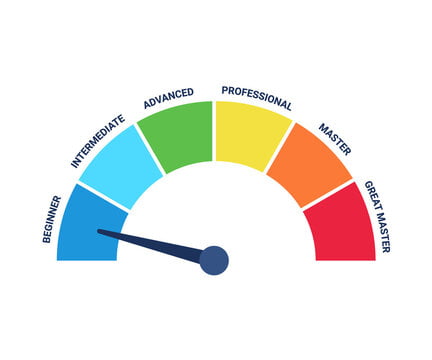Teaching English – Advanced Level

Teaching English at an advanced level requires a deep understanding of the language and a well-planned approach.
Check here if you are a Beginner
Contents
Tips and guidelines for teaching English at an advanced level:

Assess the students’ proficiency level:
To assess the student’s proficiency level, you can administer a proficiency test such as the TOEFL or IELTS, or use an assessment tool that measures their reading, writing, listening, and speaking skills. You can, for example, assign students to read a passage, answer comprehension questions, write an essay, participate in a discussion, or give a presentation.

Plan your curriculum:
You can plan your curriculum after you have assessed the student’s proficiency level. If your students are interested in business English, for example, you can create a curriculum that includes topics like negotiation skills, business writing, and giving presentations. If your students are interested in culture, you can include literature, music, and film.
Also Read: The Importance of English in Today’s World

Use authentic materials:
Authentic materials are real-life materials that native speakers use. For example, you can expose your students to real-life English by using newspaper articles, podcasts, and videos. You can also use authentic materials to teach specific skills such as gist listening and detail reading.
Also Read: Best Appreciation template for Team Members

Encourage critical thinking:
Critical thinking involves analyzing information and making judgments based on evidence. You can, for example, assign your students to analyze a news article, debate a topic, or present their ideas in writing or through a speech.

Provide feedback:
Students must receive feedback in order to understand their own strengths and weaknesses. You can, for example, provide feedback on their written assignments, advice on how to improve their pronunciation, or constructive criticism of their public speaking skills.
Check how to provide feedback here

Incorporate technology:
Technology can help students learn more effectively by providing them with interactive and engaging learning experiences. For example, you can create fun and interactive vocabulary quizzes using online tools like Quizlet or Kahoot, or you can facilitate online discussions using video conferencing software like Zoom.

Create a supportive environment:
Creating a supportive and inclusive learning environment in the classroom entails cultivating a sense of community. You can, for example, encourage students to work in groups, provide opportunities for peer feedback, and to share their cultural experiences.

Set goals:
Setting goals helps students stay motivated and focused on their learning. For example, you can help students set specific goals such as improving their pronunciation or increasing their vocabulary and provide them with feedback on their progress.
Keep learning fun:
Students should find learning engaging and enjoyable. You can, for example, use charades or Pictionary to practice vocabulary, or role-playing activities to practice conversation skills. Cultural events and celebrations can also be incorporated into the curriculum to make learning more enjoyable and meaningful.







